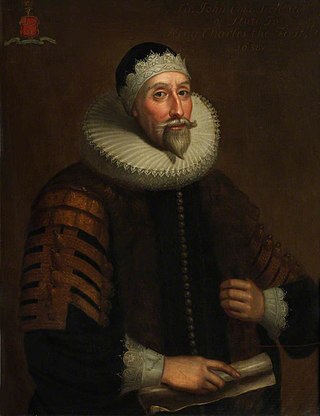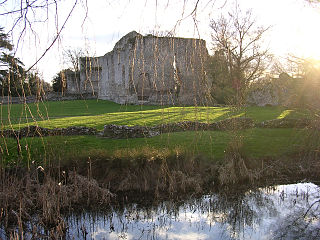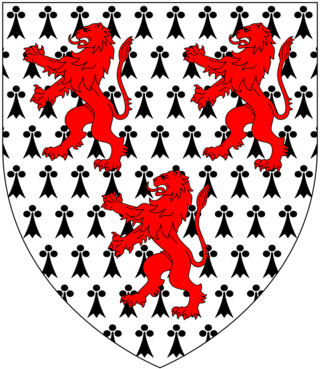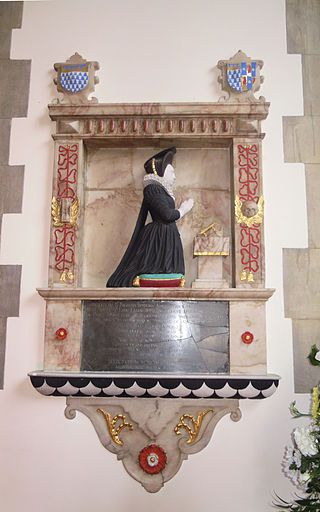Related Research Articles

Sir John Coke was an English civil servant and naval administrator, described by one commentator as "the Samuel Pepys of his day". He was MP for various constituencies in the House of Commons between 1621 and 1629, and served as Secretary of State under Charles I, playing a key part in government during the eleven years of Personal Rule from 1629 to 1640.

Sir Robert Harley was an English statesman who served as Master of the Mint for Charles I. A devout Puritan, he supported Parliament in the Wars of the Three Kingdoms.
Sir John Lowther, 1st Baronet was an English lawyer, landowner, and politician who sat in the House of Commons for Westmorland in 1628 and in 1660. He took no great part in the English Civil Wars.
Sir John Fenwick, 1st Baronet of Wallington and Fenwick, Northumberland, was an English landowner and politician who sat in the House of Commons at various times between 1624 and 1648. He supported the Parliamentary cause in the Civil War.

John Arundell, Esquire, of Trerice in Cornwall, later given the epithet "Jack for the King", was a member of an ancient Cornish gentry family, who as a Royalist during the Civil War served King Charles I as Governor of Pendennis Castle, Falmouth. In 1646 he retained the castle in a heroic manner during a five-month-long siege by Fairfax, during which his forces were reduced by hunger to eating their horses, and finally achieved an honourable surrender
John Pyne was an English politician who sat in the House of Commons at various times between 1625 and 1653. He supported the Parliamentary cause during the English Civil War, but fell out with Oliver Cromwell during the Interregnum. At the Restoration he was exempted from the general pardon.

Thomas Fanshawe, 1st Viscount Fanshawe KB was an English politician who sat in the House of Commons at various times between 1621 and 1661. He supported the Royalist cause in the English Civil War. Following the Restoration he was raised to the peerage.
Sir Thomas Jervoise was an English politician who sat in the House of Commons variously between 1621 and 1653. He was a staunch supporter of the Parliamentary side during the English Civil War.

Sir John Harrison of Balls Park, Hertfordshire was an English politician who sat in the House of Commons variously between 1640 and 1669. He supported the Royalist side in the English Civil War.
Charles Price was a Welsh soldier and politician who sat in the House of Commons variously between 1621 and 1642. He fought on the Royalist side in the English Civil War and is believed to have been killed in a duel.
Henry Benson of Knaresborough, Yorkshire was an English politician who sat in the House of Commons variously between 1626 and 1641.

Sir Francis Wenman was an English politician who sat in the House of Commons between 1628 and 1640.
Sir Richard Harrison was an English politician who sat in the House of Commons variously between 1621 and 1640. He supported the Royalist side in the English Civil War.
Richard Bulkeley was a Welsh politician who sat in the House of Commons between 1626 and 1629.
William Frankland was an English politician who sat in the House of Commons from 1628 to 1629 and in 1640.

John Fettiplace (1583–1658) was an English politician who sat in the House of Commons at various times between 1626 and 1644. He supported the Royalist cause in the English Civil War.

Richard Whitehead or Whithed was an English politician who sat in the House of Commons at various times between 1628 and 1653. He fought for the Parliamentary army in the English Civil War.
Sir Richard Lloyd was an English politician who sat in the House of Commons at various times between 1628 and 1676. He fought for the Royalist army in the English Civil War.

Sir George Chudleigh, 1st Baronet, of Ashton, Devon, was an English landowner and politician, who sat in the House of Commons at various times between 1601 and 1625. He had close family connections to a group of Devon Presbyterians, including Sir William Strode.

Sir Richard Tichborne, 2nd Baronet was an English politician who sat in the House of Commons from 1597. He was a Royalist commander in the English Civil War.
References
- "JONES, Richard (1578-bet.1658/64), of Trewern, Llanfihangel Nant Melan, Rad". History of ParliamentOnline. Retrieved 30 June 2013.